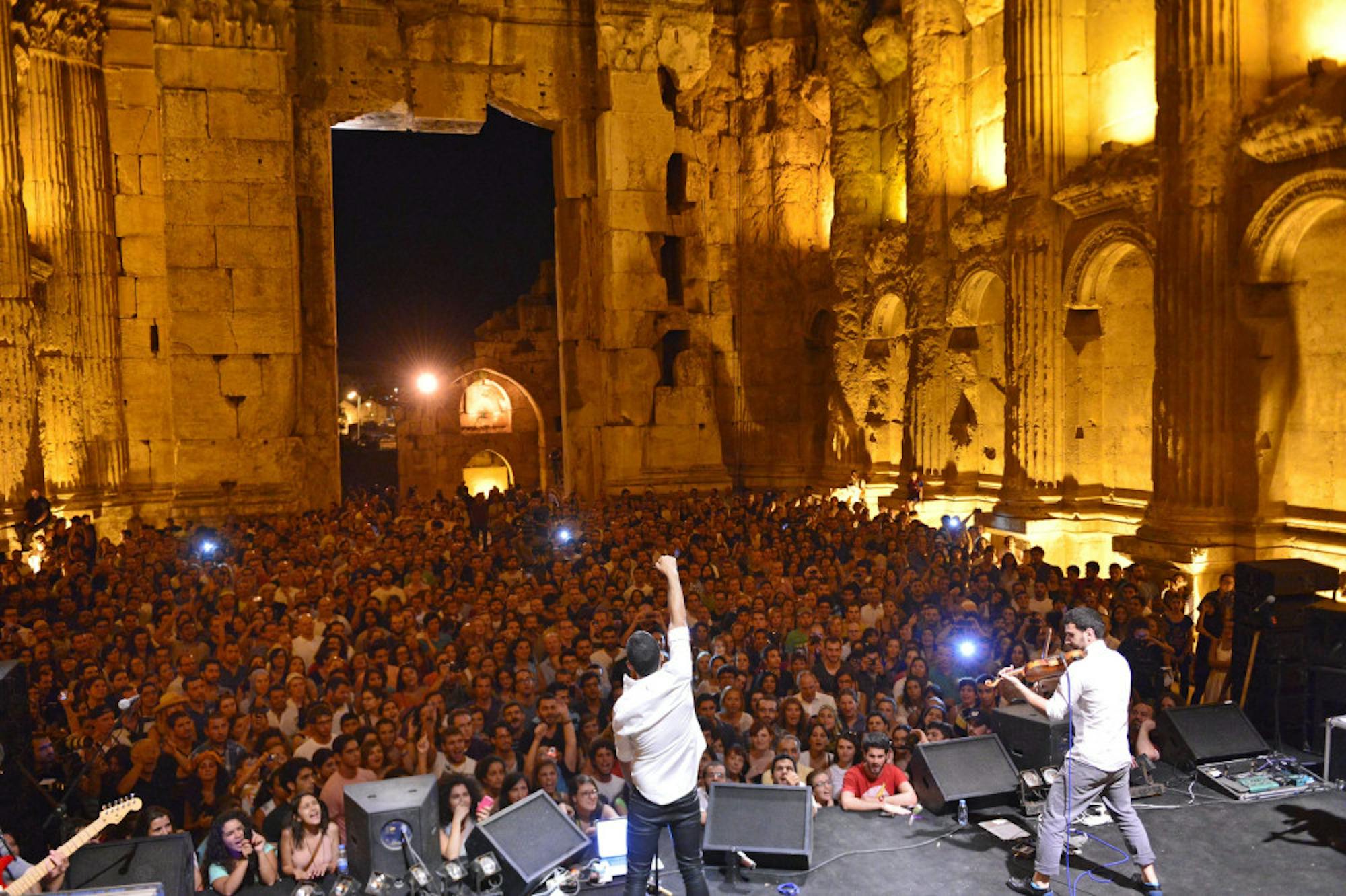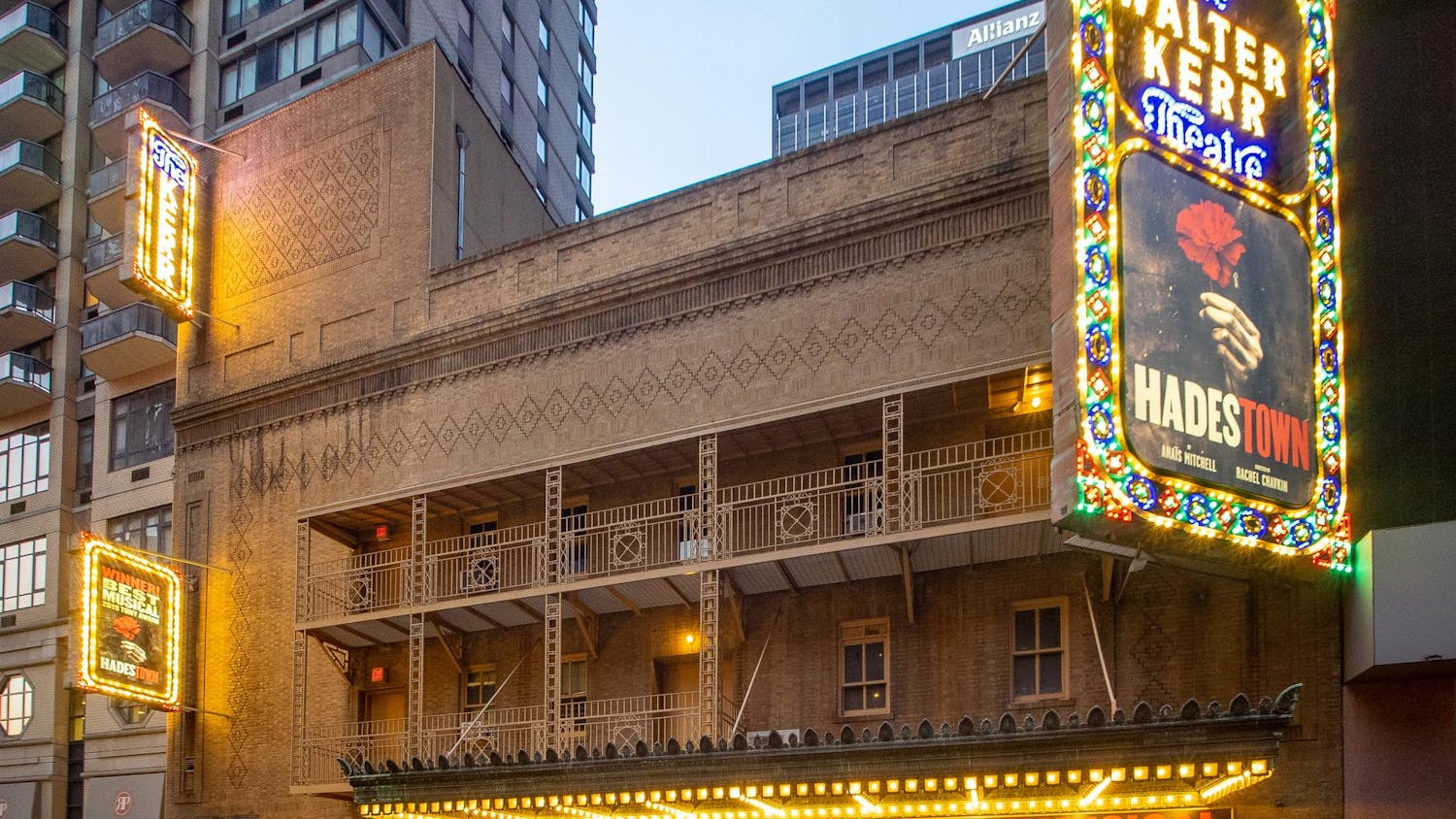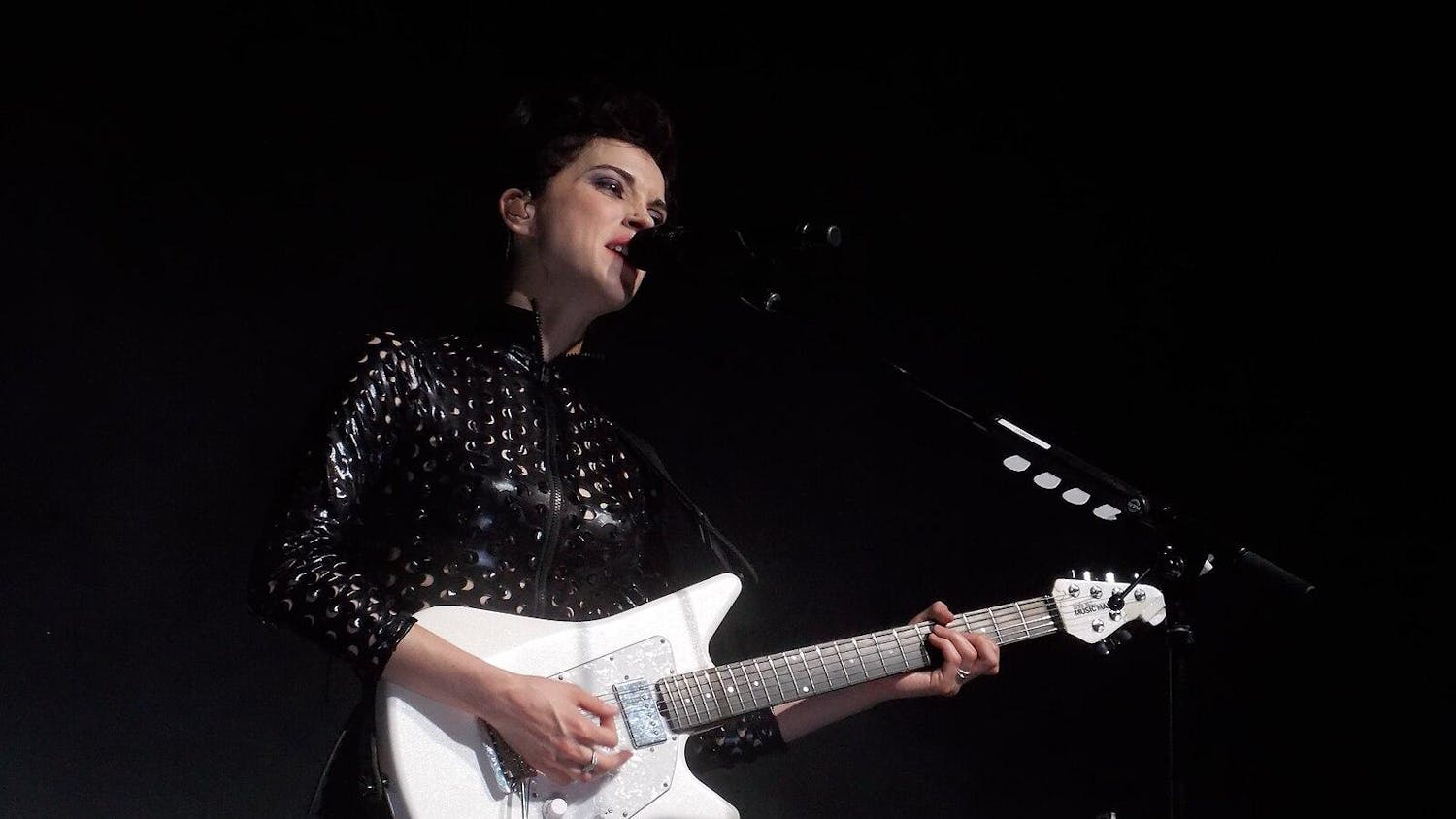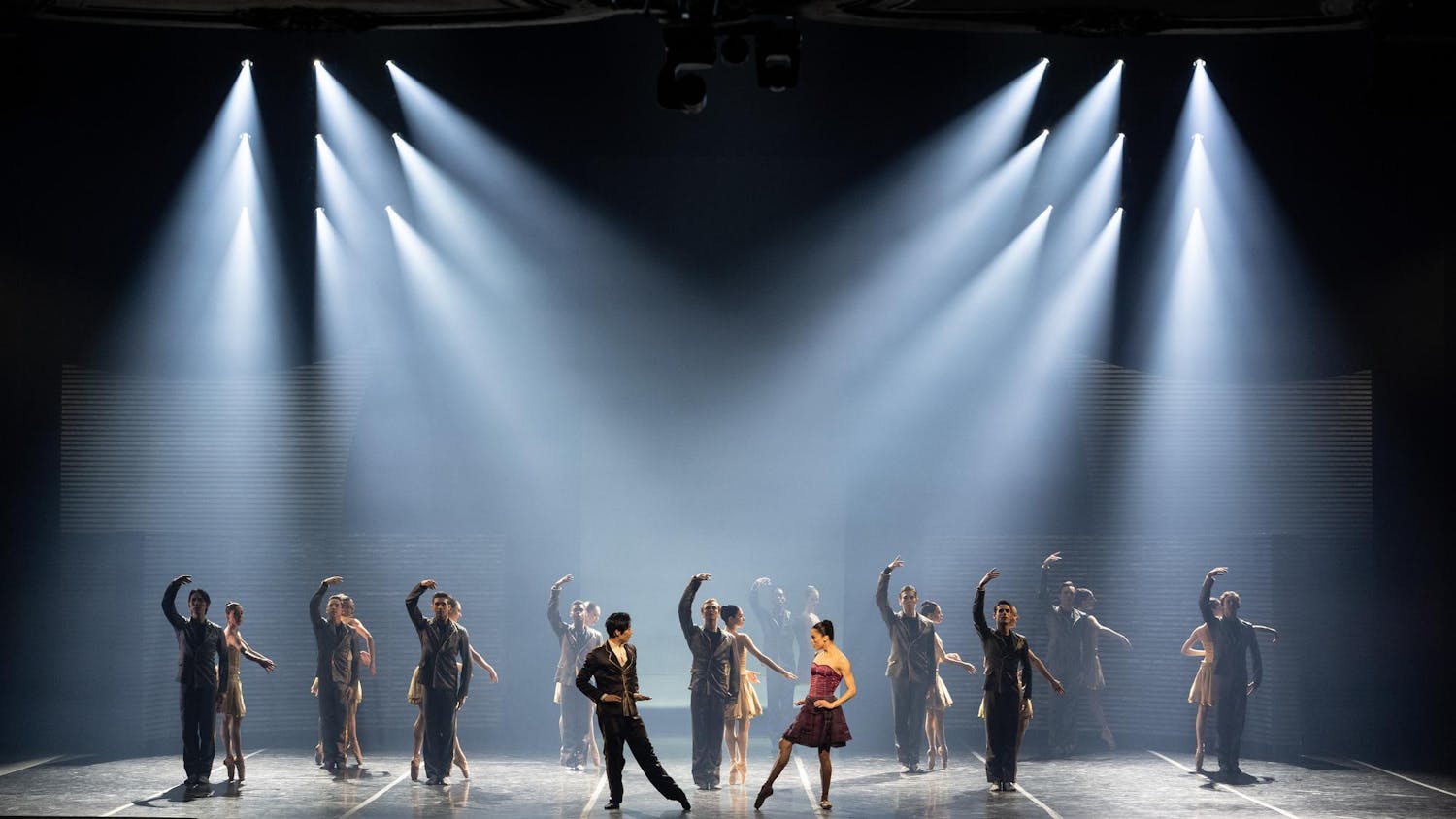The atmosphere was electric at the Middle East in Cambridge on Monday night as Lebanese alternative rock band Mashrou’ Leila played the second show of its debut U.S. tour. Blue, green, red and purple lights colored an empty stage, illuminating the instruments and mics. The crowd restlessly waited for the band to finally make its appearance. When band members finally came into the spotlights, the crowd cheered. Some fans yelled the band's Arabic lyrics; others called out the names of the various band members.
Mashrou' Leila -- meaning either “Leila’s project” or “overnight project” -- was created by violinist Haig Papazian, guitarist Andre Chedid and pianist Omaya Malaeb in 2008 at the American University of Beirut. The three musicians wanted to give students a place to voice, via music, their frustrations with both the unstable political situation and the stress of college.
This mission lives on in the band today. Mashrou' Leila's music mainly caters towards the youth of Lebanon -- and other Middle Eastern countries -- who are fed up with the status quo in the region and the sectarian conflicts occurring there. The themes of sexuality, love, tolerance and revolution, which the band frequently explores, likely resonate with all its fans regardless of nationality.
Monday night's sold-out concert was part of the band's tour for its third album, "Raasuk" (2013), after the release of “Mashrou' Leila” (2009) and “El Hal Romancy” (2011). From here, they will be performing in Los Angeles, San Francisco (another sold-out venue) and New York. At the Middle East, lead singer Hamed Sinno suggested that the band's fourth album will be coming out in November.
Before beginning the performance, Sinno explained that he was rejected from Berklee College of Music. According to him, it was because “[he] sang in Arabic" but that "it was not that big of a deal anyways." Sinno also proclaimed the audience to be a crowd that was “70 percent Arab, 30 percent non-Arab." He continuously referred to this “30-70” divide, introducing “Lil Watan” (2013) -- literally meaning “to the homeland” -- as a song “only the 70 percent will understand."
Sinno is also the first openly gay member of an Arabic-speaking alternative rock band, a fact that he does not hide in his lyrics. Oftentimes, the band's songs, like “Shim el Yasmine,” tell a story from Sinno's life. “Shim el Yasmine” is about a man whom Sino wanted to introduce to his parents as his groom. Gay relationships (and gay marriage) are topics rarely broached by Arabic-speaking bands that instead generally stay with the “boy meets girl” trope in order to conform to cultural norms. For Mashrou’ Leila, defying cultural norms is the norm, and because of its willingness to break with societal conventions, the band has caused its fair share of controversy over the years. With lyrics like those in “Shim el Yasmine," the band essentially challenges the youth of Lebanon to voice their concerns with social issues like gay rights.
Mashrou' Leila's music is unique, not only for its lyrics, but also for the variety of instruments used, including an electric guitar, a violin and a megaphone, which is employed in various songs to alter Sinno’s voice.
At the Middle East, the crowd showed its obvious adoration for the group. Concertgoers chanted along to its lyrics, made hearts with their hands and shouted out to the band members. Some fans even offered to translate the Arabic lyrics into English for those who did not understand, creating an atmosphere that fostered dialogue and learning between Arabic and non-Arabic speakers alike.
Mashrou' Leila, Lebanese alt-rock band, electrifies on first U.S. tour

Mashrou' Liela perform at the Baalbeck Festival 2012.





